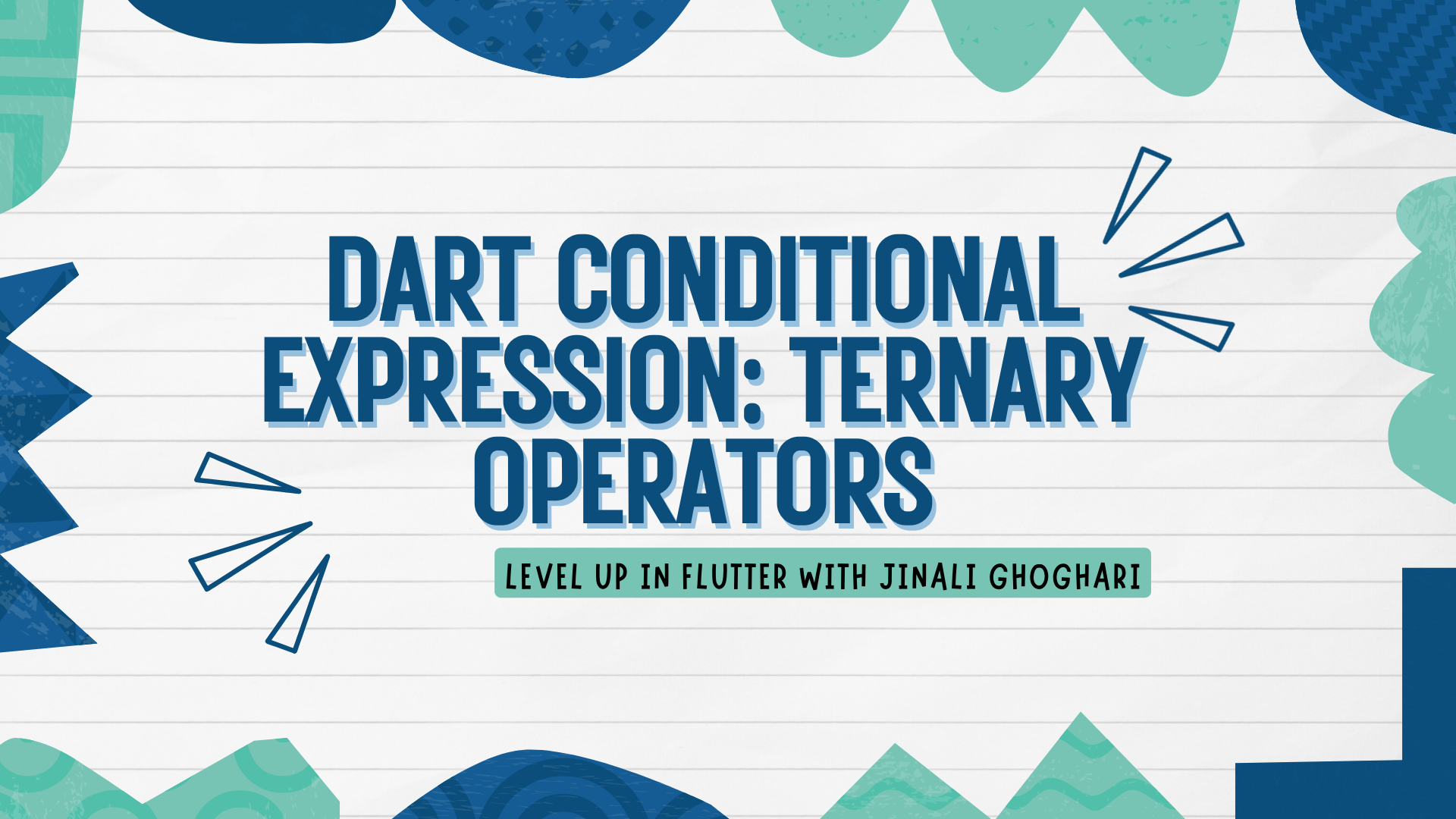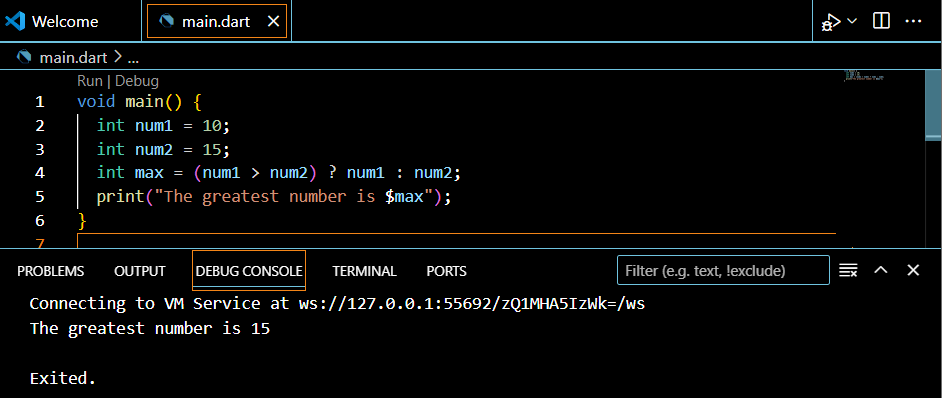Dart Conditional Expression: Ternary Operators
 Jinali Ghoghari
Jinali Ghoghari
A ternary operator is a conditional operator that takes three operands:
a condition followed by a question mark (?), a result expression to evaluate if the condition is true, followed by a colon (:), and another result expression to evaluate if the condition is false.
The syntax of the ternary operator is:
condition ? expression1 : expression2
Here's how it works:
If the condition evaluates to true,
expression1is executed.If the condition evaluates to false,
expression2is executed.Ternary operators are often used as shortcuts for simple conditional statements, providing a more concise way to express conditional logic, especially in cases where the if-else statement would be repetitive or verbose. They are particularly useful when assigning values based on conditions or when returning values from functions based on conditions.

int max = num1 > num2 ? num1 : num2;is the ternary operator.It checks the condition
num1 > num2. If this condition is true, it assigns the value ofnum1tomax; otherwise, it assigns the value ofnum2.So, if
num1is greater thannum2,maxwill be assigned the value ofnum1; otherwise, it will be assigned the value ofnum2.Finally, it prints the result using
print("The greatest number is $max");.
Subscribe to my newsletter
Read articles from Jinali Ghoghari directly inside your inbox. Subscribe to the newsletter, and don't miss out.
Written by
